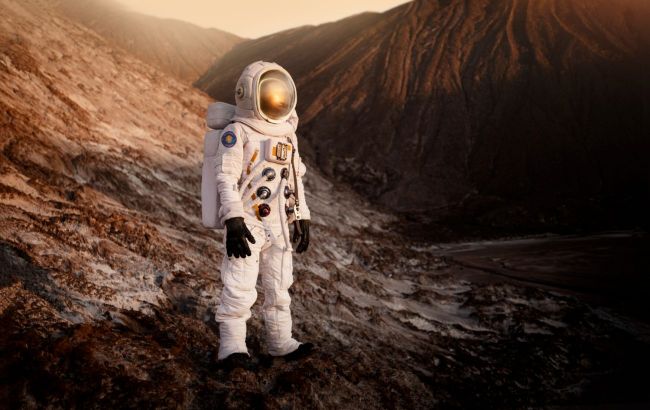Mars colonization gains ground: Scientists develop method to extract oxygen
 Scientists have figured out how to synthesize oxygen on Mars (photo: Freepik)
Scientists have figured out how to synthesize oxygen on Mars (photo: Freepik)
Scientists have found a way to "mine" oxygen on Mars. A robotic chemist with artificial intelligence has synthesized compounds from a meteorite from Mars that can be used to produce oxygen from water, according to Space.
What is known about the discovery
Future missions to Mars will require oxygen. It is needed not only for astronauts' breathing but also for use as rocket fuel.
One of the key ways to make such missions economically less costly is to use the resources of the Red Planet. This would be much easier than bringing oxygen and materials that produce it from Earth.
According to scientists, this development is promising because Mars has significant reserves of frozen water ice. And since water is composed of hydrogen and oxygen, scientists have been looking for ways to harvest the latter element from these Martian reserves. In particular, compounds known as catalysts can stimulate chemical reactions that "split" water molecules to form oxygen and hydrogen.
How the study was conducted
In the new study, the researchers focused on five different categories of Martian meteorites. The artificial intelligence robotic chemist in this Martian ore counted more than 3.7 million molecules that it could create from six different metallic elements in the rocks - iron, nickel, manganese, magnesium, aluminum, and calcium.
Over six weeks, without any human intervention, the AI chemist selected, synthesized and tested 243 of these different molecules. The best catalyst found by the robot could split water at a temperature of minus 34.6 degrees Fahrenheit (minus 37 degrees Celsius). This is the temperature on Mars.
The researchers estimate that it would take a human about 2000 years to find the "best" catalyst using conventional trial and error methods. At the same time, while these findings show that artificial intelligence can be very useful in science, it also needs human guidance. An AI chemistry robot is only smart if a human teaches it how to do something.
Now, scientists are trying to find out whether their AI chemist can work in Martian conditions, where the composition of the atmosphere, air density, humidity, and gravity are very different from those on Earth.
Previously we wrote that astronomers have discovered a system of seven planets, two of which are similar to Earth.

